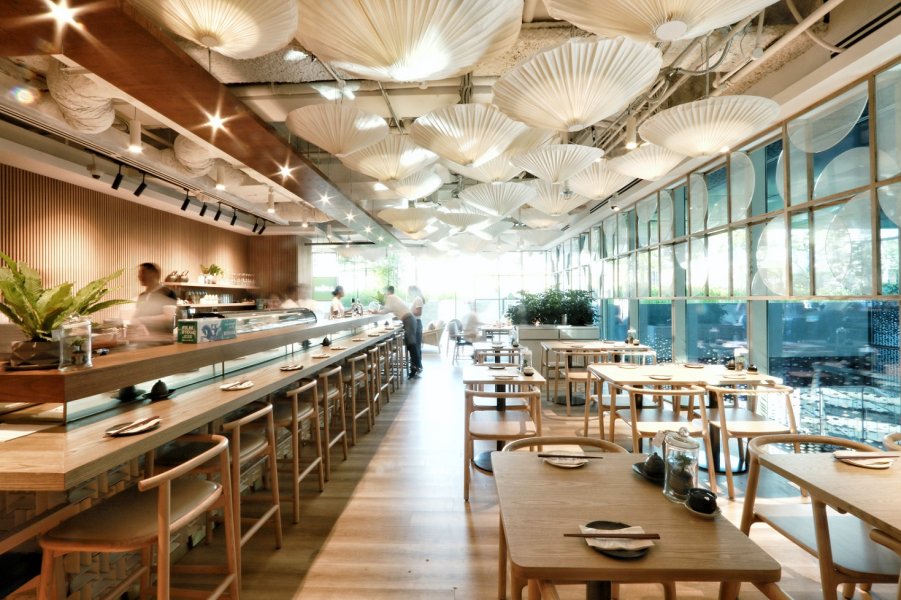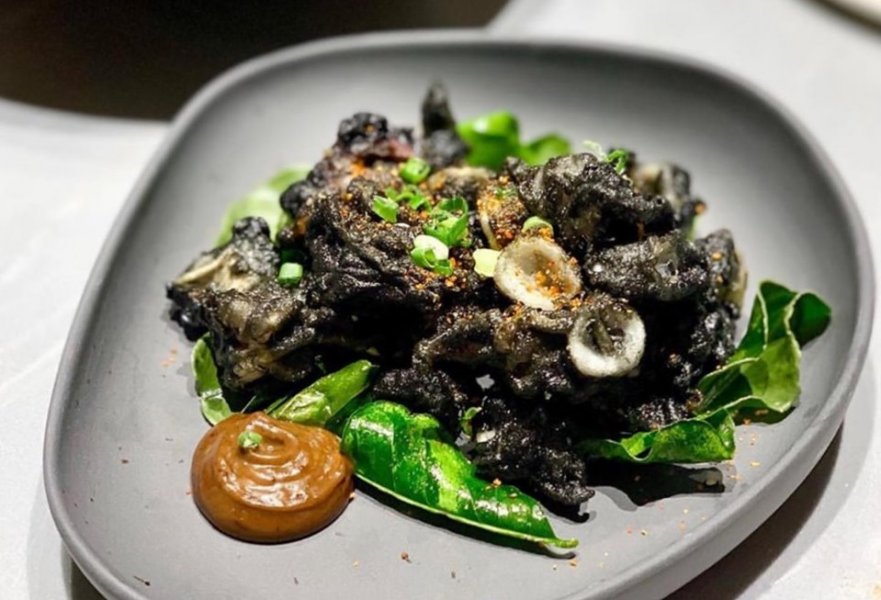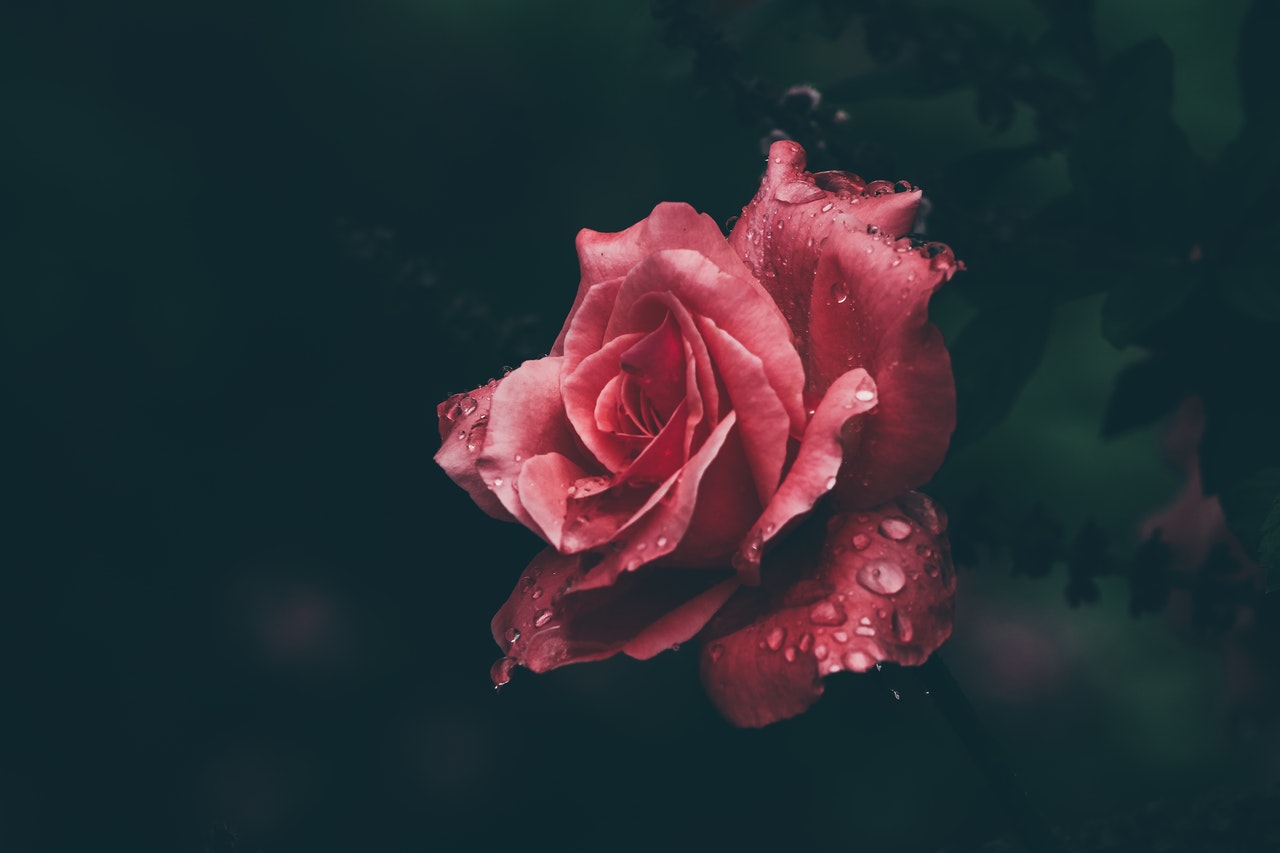The hype: We’re not sure which is the more exciting bit—the fact that Noka is the sister restaurant of Spa Esprit’s groundbreaking Open Farm Community concept, or that the menu is such a unique offering of local and regional produce-forward Japanese cuisine.
The vibe: Plenty of soft wooden tones, an overhanging light feature resembling washi paper umbrellas and floor-to-ceiling windows letting plenty of natural light indoors lend a comforting, contemporary Japanese mood to the place. Choose between regular tables, counter seats or low-slung sofas at this cosy 72-seater.

The food: Take a peek (or feel free to take a stroll) at the rooftop urban garden—operated in partnership with local urban farming gurus Edible Garden City—outside the restaurant, for that’s where much of the flora on your plate in Noka, meaning farmhouse in Japanese, comes from.
The menu, by Niigata-born head chef Seki Takuma, looks just like one you’ll find at a fine Japanese establishment, what with its omakase ($150) and sushi offerings. But each item actually belies something unconventional. Forgoing usual sourcing traditions, Noka makes an effort to procure from local and regional producers as much as possible.

Their charcoal calamari ($15), for instance, makes good use of the aforementioned rooftop garden’s fresh herbs, while their asparagus tempura ($15) uses asparagus grown locally and organically at Quan Fa. And in their snow-aged wagyu main ($89), locally-grown Okinawan spinach and other microgreens are used.
There’re Japanese trappings too of course, in its refined touches and attention to flavour balance, ensuring that despite not utilizing the most premium ingredients available, the cuisine remains elevated. And with a Niigata native at the helm, you can be sure the prefecture’s famed rice features prominently on the menu.
The drinks: A decent selection of wines, some cocktails and beer is available, but you should really be going for the sake. Most are sourced from Niigata, again, famed for their rice, which sake is made from. The Wakimizu ($115/bottle) with its gold flakes floating about is an easy conversation-starter, while the Dassai 23 ($238/bottle) is the obvious choice for those looking for a quality sake to go with their food.
Why you’ll be back: Half the experience at Noka really lies in the appreciation of sustainability and local produce, and marrying that with the sensibilities of Japanese cuisine is all at once unique and thoughtful. If you’re a fan of Open Farm Community, this is easily your next haunt.





